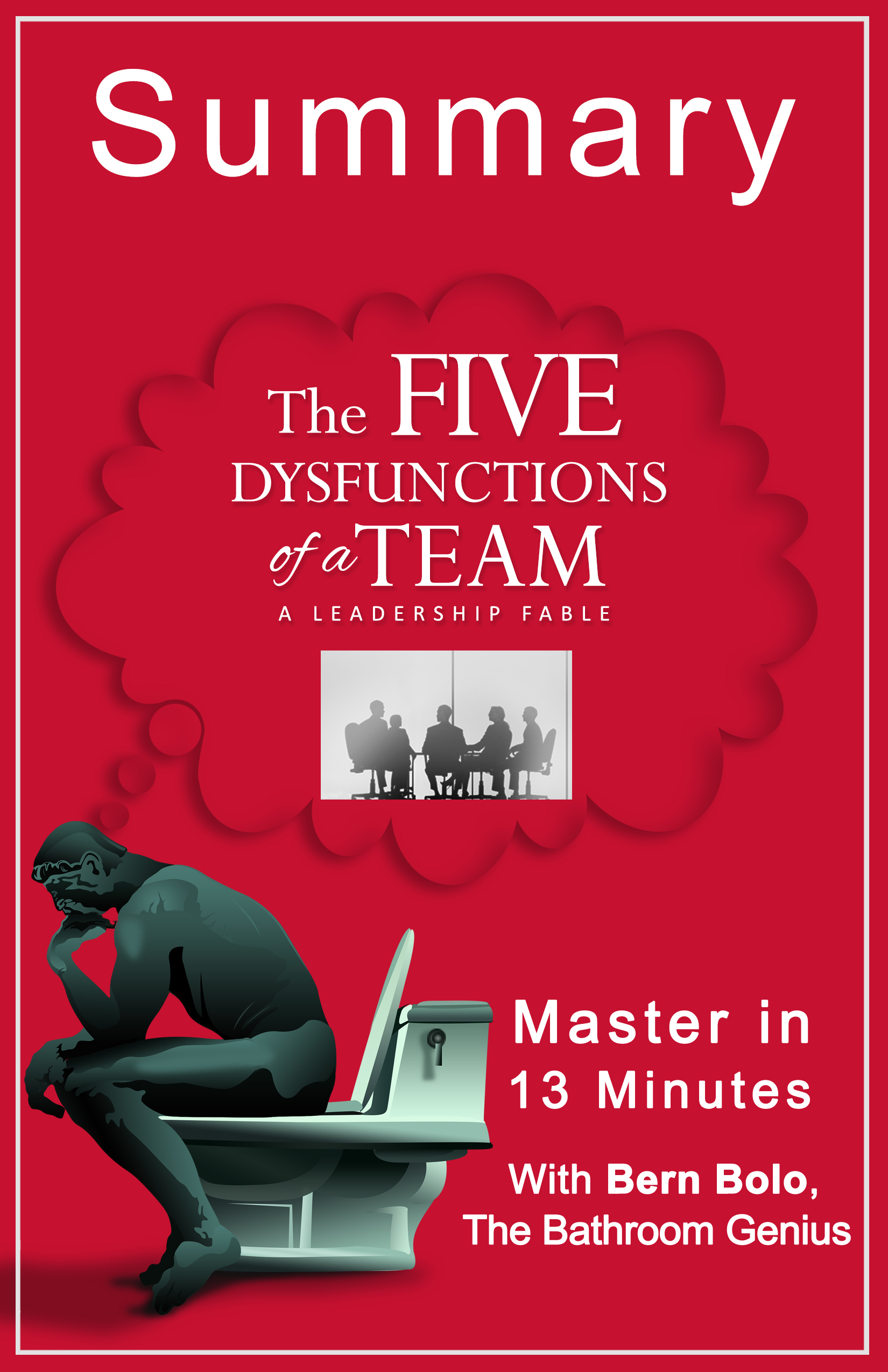
The Five Dysfunctions of a Team: by Patrick Lencioni (A Leadership Fable) | A 13-Minute Summary
Book Description
What if the key to unlocking a powerhouse team lies in embracing vulnerability? In "The Five Dysfunctions of a Team," Patrick Lencioni lays bare the hidden perils that sabotage success and trust among team members. Through a gripping narrative, this 13-minute summary by Bern Bolo reveals how fear, conflict, and lack of accountability can cripple even the most skilled teams. Dive into a world where relationships matter, and discover the transformative power of open communication and unity. Are you ready to conquer the dysfunctions that hold your team back from greatness?
Quick Book Summary
Bern Bolo’s summary of "The Five Dysfunctions of a Team" distills Patrick Lencioni’s celebrated fable into actionable insights for building and leading effective teams. The book uncovers five core dysfunctions—absence of trust, fear of conflict, lack of commitment, avoidance of accountability, and inattention to results—that undermine team performance. At its heart is the belief that vulnerability among team members is vital to building trust and fostering open communication. The summary highlights how courageous leadership, constructive conflict, and a focus on collective success create the foundation for thriving teams. By recognizing and systematically addressing these dysfunctions, any organization can transform destructive patterns into a culture of collaboration and achievement.
Summary of Key Ideas
Table of Contents
Building Trust through Vulnerability
The foundation of any high-performing team is trust, specifically the kind built on vulnerability. In this summary, Bolo explains that only when team members are comfortable admitting mistakes and weaknesses can they communicate honestly and connect on a deeper level. This vulnerability-based trust encourages openness about fears and limitations, laying the groundwork for mutual support and avoiding superficial harmony.
Embracing Healthy Conflict
Once trust is established, teams must not shy away from conflict. Productive disagreement is crucial for growth, enabling teams to surface different perspectives, challenge assumptions, and make better decisions. Rather than fearing conflict, successful teams welcome debate as a means to clarify issues and prevent resentment from festering under the surface. Constructive conflict ensures that every voice is heard and valued before moving forward.
Driving Commitment and Clarity
Clarity and buy-in are essential for delivering results. The summary highlights the dysfunction of lack of commitment, where team members hesitate to fully invest in group decisions. By engaging in open conflict and honest dialogue, teams can ensure everyone is understood, making it easier for individuals to commit—even if the final decision isn’t unanimously supported. This mutual understanding brings focus and alignment to the team’s goals.
Fostering Accountability
Accountability is the next critical pillar. Without a foundation of clear commitments, holding each other responsible becomes challenging. The fear of interpersonal discomfort often prevents team members from calling out missed deadlines or subpar behavior. Successful teams overcome this by normalizing peer-to-peer accountability, reinforcing a culture where everyone is dedicated to collective standards and goals.
Focusing on Collective Results
Ultimately, the highest-functioning teams prioritize shared results over individual recognition. The summary underscores that inattention to results often arises when personal status or departmental success outweighs organizational objectives. Teams that address all preceding dysfunctions can redirect their attention from personal achievement toward an unwavering focus on collective outcomes, unlocking their true potential and achieving sustained excellence.
Download This Summary
Get a free PDF of this summary instantly — no email required.





